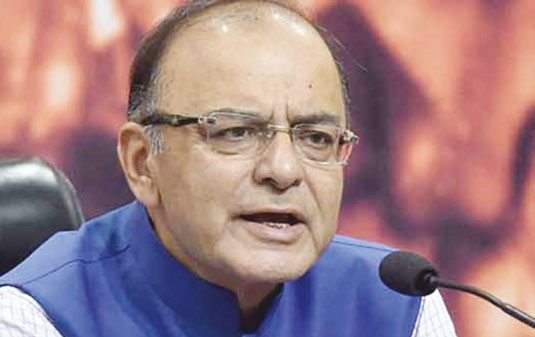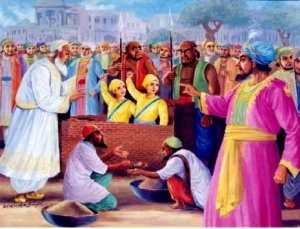
NEW DELHI (TIP): Andhra Pradesh is likely to be put under President’s rule amid indications that a decision to this effect may be taken in the next couple of days. The state has been without a full-scale government after CM Kiran Reddy resigned on February 19 to protest against the passage of the Telangana bill in Lok Sabha.
Sources, however, said it was clear that elections to new assemblies of Telangana and Andhra Pradesh may not be held along with Lok Sabha polls in May. The term of the assembly of undivided Andhra Pradesh runs out with that of the current Lok Sabha. But the fact that the House has now been split into two new assemblies — 175-strong one for Andhra Pradesh and a separate one with 119 for Telangana — may give the Centre and the Election Commission latitude to delay elections.
The leeway may suit Congress which has to work out the modalities of alliance, even a merger with Telangana Rasthra Samithi. The two parties hope to sweep the 17 Lok Sabha seats in the Telangana region, arguably the sole driver for Centre getting into overdrive to partition AP after years of wavering and shuffling. Political circles estimate that Congress may be able to persuade TRS boss K Chandrasekhar Rao to leave the overwhelming majority of LS seats in exchange for a higher share of assembly seats for the Telangana outfit.
Congress is still debating the pros and cons of a merger with TRS, with a strong school in the party feeling that the presence of a friendly Chandrasekhar Rao as an independent figure may help splinter the anti-incumbency sentiment. Having been okayed by the two Houses, the bill will be sent by the home ministry to President Pranab Mukherjee for his assent. The presidential go-ahead will clear the way for a notification in the Gazette of India about the birth of Telangana as the 29th state of the Union. The gazette notification will also mention the day on which Telangana will be deemed to be born.
Cong, BJP sealed Telangana deal on Feb 19
A deal on the Telangana bill was sealed late on February 19 evening with Congress troubleshooters agreeing to BJP’s demand that the government make a specific commitment on Seemandhra’s postpartition revenue deficit. Congress finalized its Telangana strategy after party managers knocked all unviable options like sending the Andhra Pradesh Reorganization Bill back to Lok Sabha with amendments spelling out guarantees for Seemandhra.
BJP leader Arun Jaitley‘s insistence that investing the AP governor with powers of law and order for Hyderabad needed a constitutional amendment was a key lever in hectic backstage negotiations over the bill. Reluctant to take the bill back to Lok Sabha and aware that a constitutional amendment needs order in the House besides two-thirds majority, Congress proposed that PM Manmohan Singh could spell out the assurances. BJP leaders, too, knew that any brinksmanship would have to stop short of stalling the Telangana bill as that would prove politically unwise given the party’s longstanding commitment to the bifurcation of Andhra Pradesh.
The saffron party felt it had reasons to feel satisfied over its crucial role in formation of Telangana while its batting for the Seemandhra cause, even at a late stage, could keep the door open for a pact with Telugu Desam Party. The PM’s declaration that Seemandhra would get special category status along with a promise to make provisions for the “successor state” of AP in the 2014-15 budget were the concessions BJP was looking for. Given Congress chief Sonia Gandhi’s backing to Telangana, her political secretary Ahmed Patel, rural development minister Jairam Ramesh and parliamentary affairs ministers Kamal Nath and Rajiv Shukla worked to seal the deal with BJP leader Jaitley and Venkaiah Naidu.
By February 20 morning, discussions between the government and BJP narrowed to modalities to facilitate functioning of Rajya Sabha with the opposition stressing that concessions to Seemandhra be spelt out unambiguously. By afternoon, home minister Sushil Shinde was able to tell Telangana Rashtra Samithi leader K Chandrasekhar Rao that the bill would be passed despite repeated disruptions in the upper House. Unlike other Telangana MPs, Rao has been quite calm over the past few days, confident that Congress would need to deliver on Sonia’s commitment. He was also clear that BJP, despite some hard bargaining, would not renege on Telangana.
Lawyersto challenge Telangana formation in Supreme Court
The Supreme Court now remains the last hope for Seemandhra advocates gunning for a united Andhra Pradesh. After the Telangana Bill was passed by the Parliament on Feb 20, Seemandhra advocates are now headed for New Delhi to challenge the bifurcation decision in the apex court as soon as the Telangana Bill becomes an Act after being signed by President Pranab Mukherjee. The advocates, who will wind up their 206-day relay hunger strike for Samaikyandhra on Friday, are also hopeful of bagging a stay order from the apex court as they feel that the entire process of bifurcation was done in an unconstitutional manner.
While some of the advocates have already left for Delhi, others are leaving this weekend as they anticipate the President to sign the Bill by early next week. Senior advocate and president of the Forum of Legal Professionals, Kuppili Muralidhar said, “We will be moving the Supreme Court once the President signs the Bill and it becomes an Act to form the state of Telangana. After President Pranab Mukherjee signs it, the government has to issue a gazette notification. Lawyers are looking to the SC as the only saviour and will file a PIL to declare the proposed AP Reorganisation Act illegal and stay further proceedings on the issue.” Meanwhile, members of Vizag Bar Association will be winding up their 206 day-long relay hunger strike on Friday, said Vizag Bar Aassociation secretary N Sanyasi Rao and convener of advocates JAC K S Suresh Kumar.
Congress faces rout in Andhra Pradesh
India’s newest state of Telangana is to be carved out of its first linguistically demarcated unit, but the Congress would be obliterated in Andhra Pradesh if the Lok Sabha polls were to be held now. An India Today Group-CVoter opinion poll conducted across Andhra Pradesh earlier this week reveals a near complete wipeout of the Congress. The polarisation of votes across Andhra that has marked the runup to the passage of the Telangana Bill in Parliament is so extreme that the successor states will vote overwhelmingly for one party, Telangana for Telangana Rashtra Samiti (TRS) and Seemandhra for Jaganmohan Reddy’s YSR Congress.
The Congress, boosted into power in 2009 by the 33 Lok Sabha seats it won of the 42 in Andhra Pradesh, is projected to come up with one seat each in the two successor states. The Bharatiya Janata Party (BJP) is predicted to win one seat in Telangana and the Telugu Desam Party (TDP) is set to take six seats. The 2009 elections were no fluke. Andhra Pradesh, India’s original ricebowl state, has been a favorite hunting ground for the Congress; it took 29 seats in the 2004 elections. In other words, a Congress or Congress-led government at the Centre is more or less predicated on a good show in Andhra Pradesh.
The India Today Group-CVoter poll has thrown up a range of interesting findings. In Seemandhara, two-thirds of the population blames the Congress for the bifurcation, while in Telangana, the TRS seems to be laughing all the way to the votebank with the credit for facilitating the creation of the new state. The Congress is simply not a major player in the rump state of Seemandhra any more. The possible alliances in to-be divided Andhra Pradesh are beginning to get complicated already. In Seemandhra, Jagan is far ahead of everyone else.
This is more bad news for the Congress, because Jagan will not join hands with them. In Telangana, TRS is said to be soft on the Congress. In both Seemandhara and Telangana, TRS may go with the Congress. On the leadership front, the divide is as clear as the new state border that is coming up. Jagan reigns supreme in Seemandhara and K. Chandrasekhar Rao in Telangana. Chandrababu Naidu is a distant second in both. The TDP has an existing voter base in both regions but the currently charged environment is not helping its cause.
In terms of party branding, the BJP comes in second place after the TRS in Telangana while the TDP comes second in Seemandhara. So while the TDP stares at a bleak future in Telangana and the BJP in Seemandhra, they could derive mutual benefit by teaming up. Due to the possibility of split voting at the Assembly and Lok Sabha level, this could just work, particularly in Telangana. In terms of vote share, Congress has less than 10 per cent in both regions. The BJP has a miniscule vote share in Seemandhara but is in second position in Telangana. The TDP has about 30 per cent vote share in Seemandhra.
If the TDP and BJP join hands, their vote share will almost be 35 per cent and the contests in this region will become much more bipolar. In terms of caste combinations, there is varied polarization in both regions. In Seemandhara, the Reddys are voting for Jagan while the Kammas are for TDP, but a big chunk for Jagan is coming from the Kapus. Kapus voted for Chiranjeevi in the last elections, but even though Chiranjeevi has merged with the Congress, they aren’t voting Congress at all. Jagan is also getting the Brahmin and Yadav votes. The Kamma vote share for the TDP is not good enough.





Be the first to comment